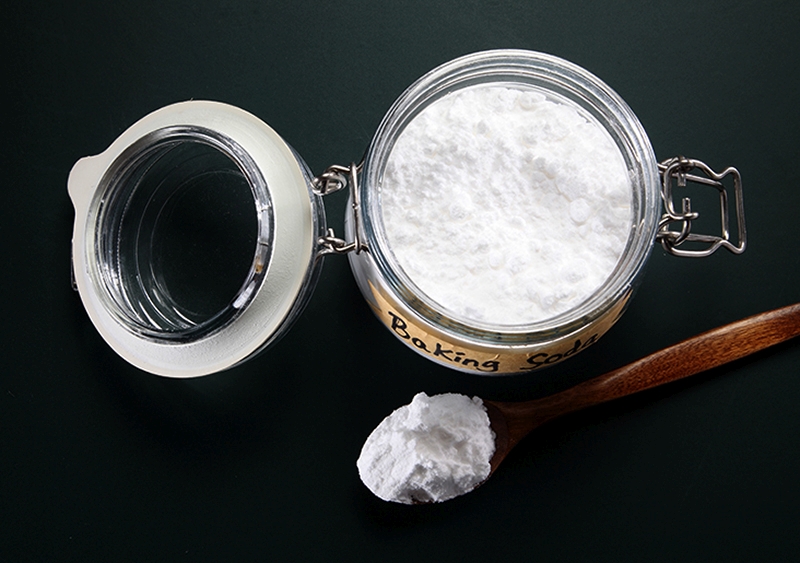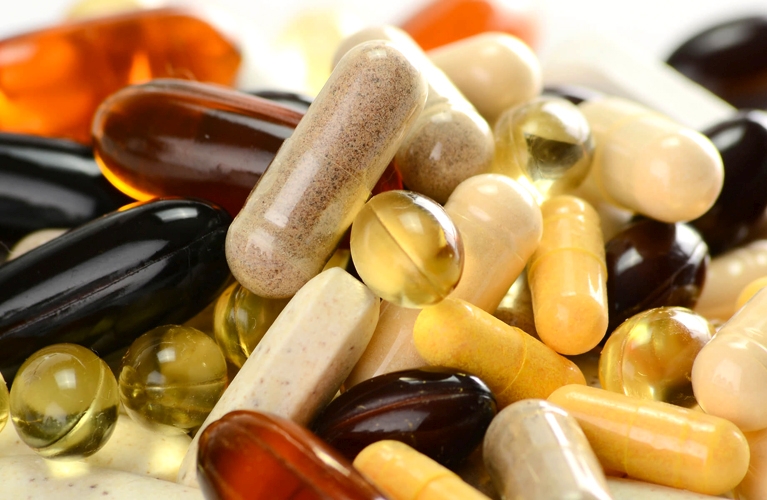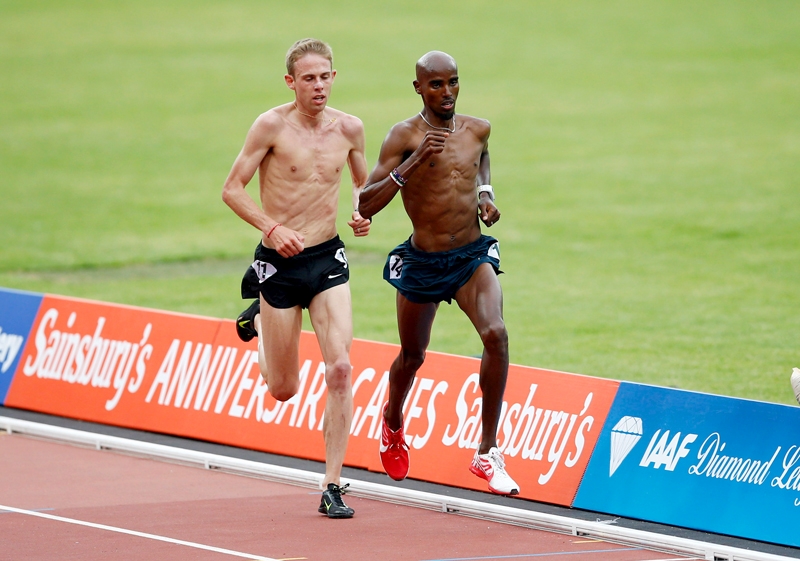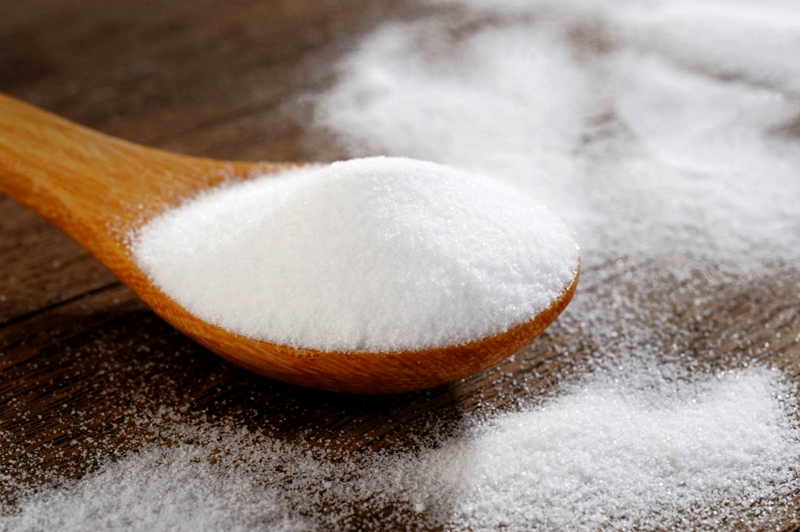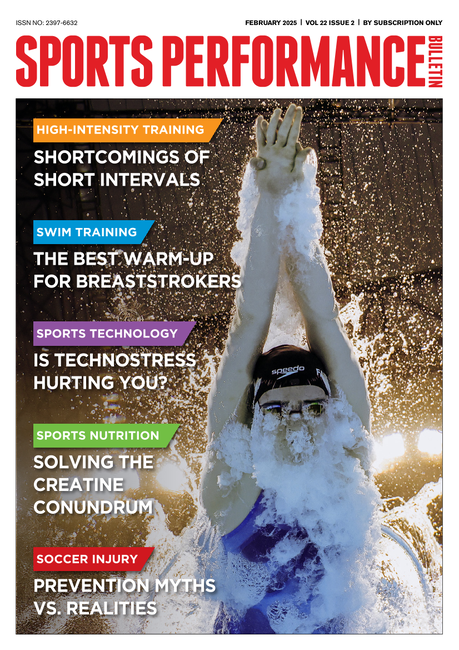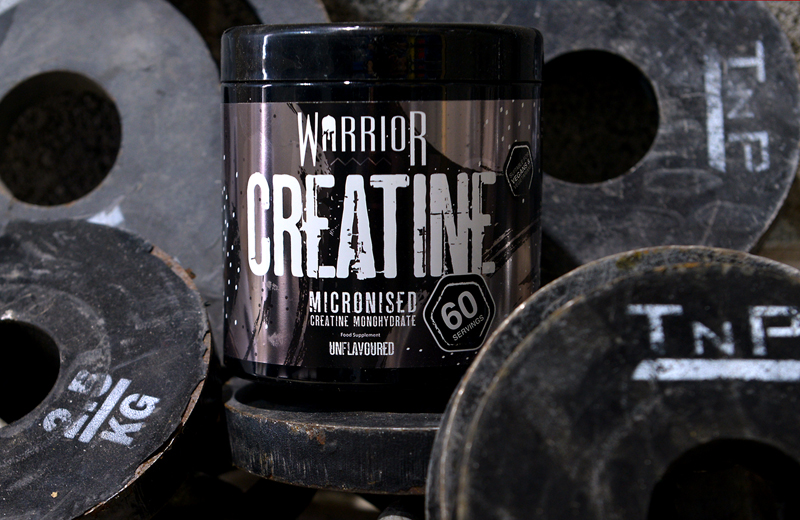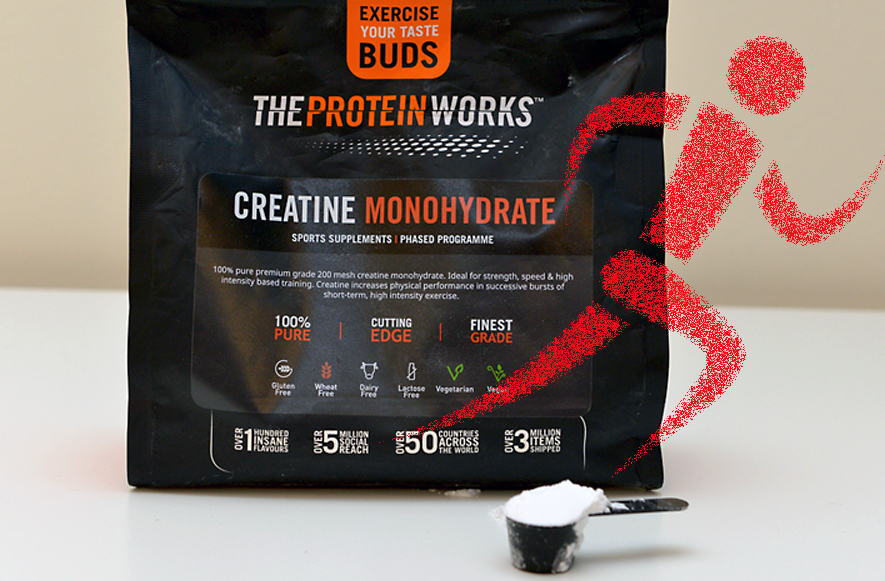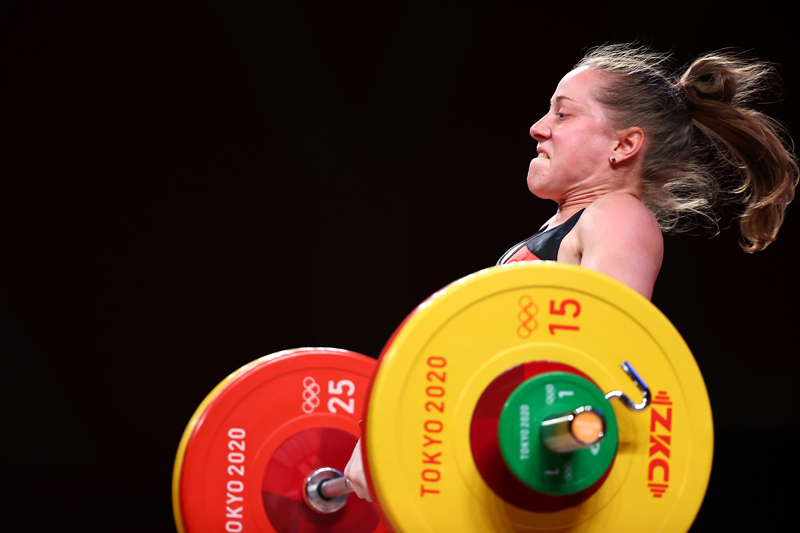You are viewing 1 of your 1 free articles. For unlimited access take a risk-free trial
Bicarbonate supplementation: time to revisit an old acquaintance?
The use of sodium bicarbonate to boost high-intensity exercise performance continues to tantalise despite its potential drawbacks. Andrew Hamilton looks at more recent research on our old friend and comes up with promising findings...
Although it never gained the same popularity as creatine, the use of sodium bicarbonate as a sport supplement for high intensity performance has actually been documented for quite a bit longer. Indeed, the use of bicarbonate to prolong maximal effort was first documented as far back as the 1930s. However, the use of sodium bicarbonate as a supplement only became widespread in the early 1980s - specifically within the realm of events such as the 400 or 800 meters, rowing and short-track cycling at elite level.Why then did it fall out of favour? Well, after an initial surge of popularity, bicarbonate use waned as many athletes discovered that its use was often accompanied by unpleasant side effects such as nausea and gastric distress - severe enough in many cases to be counterproductive. Then by the late 80s, creatine was emerging on the scene and the rest, as they say, is history. However, despite its fall from favour, the physiological rationale for using bicarbonate remains of course (see next section). And as we’ll see, new research shows that with careful administration, many athletes may find that they can reap the benefits of bicarbonate without suffering the drawbacks.
Why does bicarbonate work?
Before we look at the new findings on bicarbonate, it’s worth taking a little time to understand why and how it works to help high-intensity exercise performance. You no doubt know that when you push your body flat out – for example during a long sprint to the finish line during a race – you experience that all-too-familiar burning fatigue sensation in your muscles. This burning/fatigue sensation is caused by a build up of acidity (or more strictly, protons - sometimes written as H+) in the working muscles, which then disrupts the chemical reactions within your muscle cells responsible for producing energy.Regardless of whether you’re at rest or exercising vigorously, your muscles continually produce protons. So why is it that proton levels start to accumulate during intense exercise? Essentially, this is because your body’s ability to ‘mop up’ and recycle these protons becomes overwhelmed during high-intensity exercise, and this happens because of a scarcity of oxygen in the working muscles. Figure 1 shows this schematically. The first stage of the breakdown of muscle carbohydrate (glycogen) always occurs without oxygen and produces something called pyruvate.
However, what happens to this pyruvate depends on how much is being produced and how much oxygen is available; if there’s not much too pyruvate being produced, there’s ample oxygen to go round and the pyruvate can be broken down aerobically to (eventually) produce water and carbon dioxide. However, during intense (anaerobic) exercise, glycogen is being broken down very rapidly into pyruvate; as oxygen supply to the muscles is finite, there’s only so much pyruvate can be broken down aerobically, which means the rest is instead converted to lactate plus protons (H+). You’ve probably heard of the term ‘lactate threshold’ – this is merely the point at which the pathway from pyruvate to lactate starts to ramp up and protons begin to accumulate. It’s also the degree of exercise intensity at which fatigue begins to set in. The total production of protons in your muscles, as well as the speed with which they are produced, will be determined by a number of factors such as your predominant muscle fibre type exercise intensity and duration, and your training capacity.
Figure 1: A schematic representation of the pathway leading to lactate and proton production
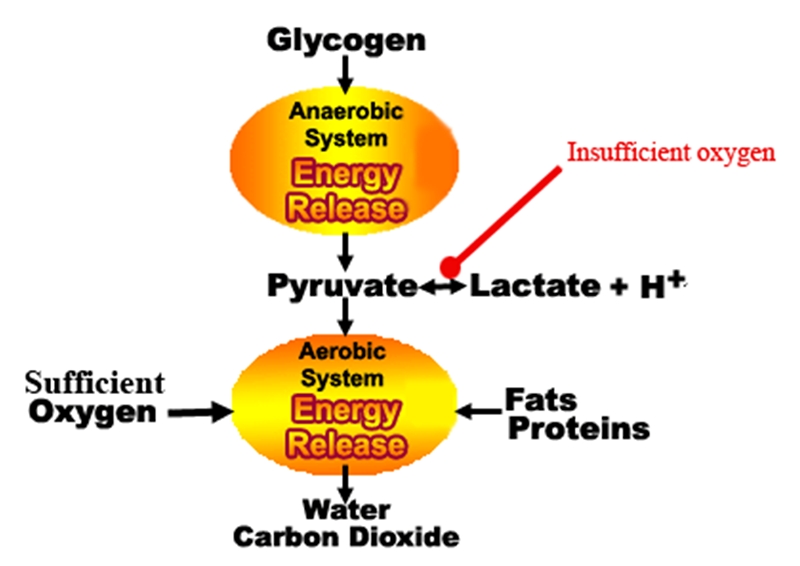
The role of bicarbonate
Hopefully, you can see that as exercise intensity is increased, the oxygen demands placed on the body become more difficult to manage and your body begins to build up a concentration of protons. Dealing with these protons is critical therefore in order to maximise your potential for sustaining performance under extreme conditions. Fortunately, our bodies are equipped to help cope with these increases in acidity – principally via a process known as ‘buffering’. Buffering refers to the body’s ability to ‘mop up’ excess protons, and in doing so, neutralising excessive acidity. You can think of buffering as the biochemical equivalent of mopping up water from a burst pipe using towels – there’s a limit to how much water you can mop up this way but it’s a good temporary solution until you can turn the water supply off!The most important buffering system in the body is without doubt the bicarbonate which circulates naturally in the blood. Being slightly alkaline, it has quite a good capacity to mop up excess protons and help stem the effects of the build up of acidity. This explains the interest in supplemental bicarbonate; by taking sodium bicarbonate before exercise, the reserve of blood bicarbonate is temporarily boosted, increasing its buffering capacity. This increased buffering capacity should in turn mean that the rise in acidity associated with sustained intense exercise is delayed a little longer, meaning you can perform at high intensity for longer before fatigue sets in.
Theory versus practice
That’s the theory of bicarbonate supplementation but what’s the reality in practice? Firstly, it’s important to realise that if you’re a recreational athlete, it’s unlikely you will be pushing yourself hard enough in training to deplete your pre-existing buffering capacity, thus rendering extra buffering via supplemental bicarbonate useless. However, if you are a competitive athlete and serious about your high-intensity training, you may have something to gain by experimenting with bicarbonate. Caution is required though because anecdotal evidence suggests that while some athletes respond to bicarbonate immediately and feel a difference during the training session (particularly when the session includes multiple, repeated maximal effort sprints), not everybody responds as positively. See panel 1 for further information.Panel 1: Possible reasons for inconsistencies in results from bicarbonate studies
Although much research suggests that bicarbonate ingestion can boost performance during maximal exercise, some studies have produced inconsistent results. There are a number of possible reasons for this including:- The amount of bicarbonate ingested - early studies indicated that a bicarbonate dose of 0.3grams per kilo of bodyweight is about the amount necessary to see any potential performance benefit (anything less being too little, anything more causing intolerable side-effects)(1);
- Timing of bicarbonate ingestion – ie getting the balance right between maximising the pool of extra available buffering in the body and minimising any potential side effects such as nausea;
- An athlete’s individual susceptibility to a) acidity increase during exercise and b) the gastric distress that occurs within the stomach as the body copes with the bicarbonate you’ve ingested. To illustrate this point, a recent British study on high-intensity intermittent running looked at the performance of 20 runners who completed twenty 24-second runs on a motorized treadmill at a speed that made them work at maximal oxygen uptake, with and without prior ingestion (60 minutes before) of bicarbonate(2). After the sprints, the participants performed a run to exhaustion at 120% of maximal oxygen uptake. The results for the group as a whole showed there was no significant performance gain when bicarbonate was ingested; however, within the group, theRE was a very large inter-individual variability in response with some runners responding well to bicarbonate and others performing worse. These mixed results may have been due to the proximity of the bicarbonate ingestion to the commencement of exercise (more about this shortly).
Although we can’t change our individual susceptibility to the issues raised in point #3 (box 1 above), we can manipulate the amount of bicarbonate and (importantly) how we time its ingestion. Research suggests that when it comes to timing, an alternative strategy might be to split your bicarbonate intake into three smaller doses of 0.1g per kilo of bodyweight (instead of 1 x dose of 0.3g per kilo) over a period of two hours(3). This ‘staged ingestion’ still results in an increase in the blood’s buffering pool from around 25mmol/litre to 30mmol/litre (enough to produce a potential increase in performance) but does it in a way that is less distressing for the stomach.
Dr Jason Seigler, a research specialist in this field has studied the effects of staged bicarbonate ingestion in the lab and modelled its potential as a strategy for athletes(4). Figure 2 shows how staged ingestion can raise blood bicarbonate levels to the 30mmol/litre needed for performance gains. Although there’s a dearth of published research on this strategy, anecdotal reports from practitioners and elite athletes indicate that they have been using this staged ingestion practice for some time. It’s important to point out however that if you wish to try this strategy yourself, you should restrict your total pre-training intake to 03.mg/kg (ie no more than 3 doses of 0.1g/kg) as higher intakes of bicarbonate could result in harmful side effects.
Figure 2: A possible ‘stacking strategy’ for bicarbonate ingestion(4)
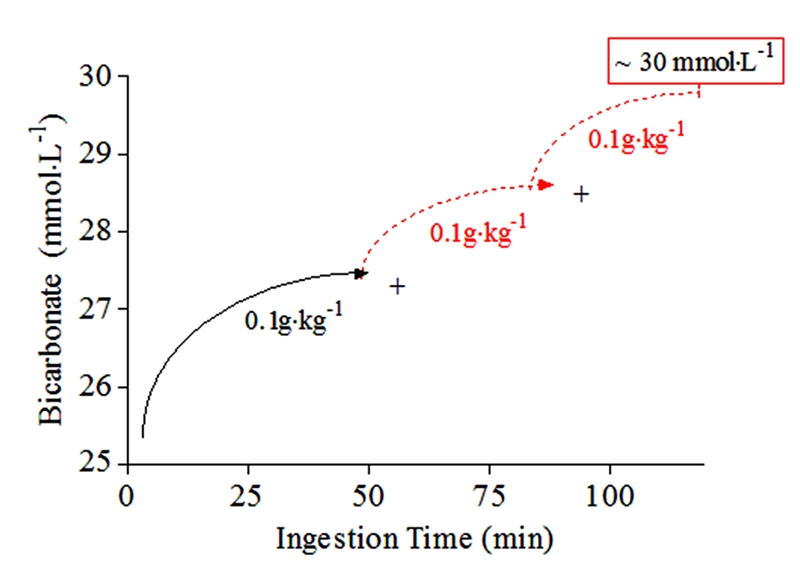
Shows how three doses of 0.1grams per kilo (0.1g.kg-1) spread over two hours can lift buffering capacity to 30mmol/L while potentially avoiding worst of any side effects of a much larger single dose.
It’s all about timing – or is it?
Spreading out a 0.3g per kilo dose over a period of two hours might help reduce the incidence of tummy distress but are the performance gains from this strategy as great as a single 0.3g per kilo dose taken an hour before exercise, or are they reduced somewhat because the bicarbonate concentration in the blood is not quite as high prior to exercise? The answer to this can be found in an important study on repeated sprinting ability in runners by Dr Seigler and his colleagues(5).In this study, eight runners completed three trials of ten, 10-second sprints separated by 50 seconds of active recovery (with a 1 to 5 ratio of work to rest) on a non-motorised treadmill. Prior to each trial, the subjects ingested 0.3g/kg of sodium bicarbonate at either 1, 2 or 3 hours before exercise and subsequent performances were compared. As expected, the average speed, average power and total distance covered progressively declined over the ten sprints. Critically however, there was no difference in overall performance regardless of when the bicarbonate was ingested – ie taking it 3 hours before exercising was just as effective as taking it just one hour before. Even better, the incidence and severity of gastric distress during was significantly reduced when the bicarbonate was ingested three hours beforehand. This suggests that you can get all the benefits of bicarbonate ingestion while minimising the drawbacks by ingesting it well before (ie three hours before you begin exercising). It also suggests that the ‘staged intake’ protocol outlined above will be just as effective performance-wise as a larger, single dose.
More recent thinking
Given that bicarbonate use to improve performance first became popular in the early 1980s, you might be forgiven for thinking that there’s little in the way of cutting edge research in this area. However, you’d be wrong because with a better understanding of the strategies required to minimise its drawbacks, current research on bicarbonate supplementation is very active indeed. For example, a 2010 study of runners looked at the effects of bicarbonate ingestion on recovery from high intensity exercise (30-second maximal efforts with three minutes of active recovery between each effort)(6). It found that sprint performance was significantly improved when bicarbonate was ingested prior to the maximal efforts – possibly because the bicarbonate was helping to accelerate recovery in the active phases between the sprints, complementing the effects of increased blood flow during active recovery.Another interesting study looked at the effects of bicarbonate ingestion prior to intense exercise on ‘heat shock protein 72’ (HSP72)(7). Basically, heat shock proteins are proteins involved in the folding and unfolding of other proteins. Their activity is increased when cells in the body are exposed to elevated temperatures or other physiological stresses such as intense exercise. In the study, seven active subjects performed a 4-minute 'all-out' cycle test following ingestion of 0.3g/kilo of bicarbonate or an inert placebo. In this particular test, there was little difference in exercise performance (but remember, these subjects were merely ‘recreationally active’ rather than competitive athletes). However, when bicarbonate was ingested, levels of HSP72 were significantly lower four hours after exercise compared to placebo – suggesting that the bicarbonate had had a protective effect, helping to reduce the degree of biochemical/physiological stress within the exercising muscles.
A study of fourteen swimmers conducted by British scientists looked at the effects of ingesting 0.3g/kg of bicarbonate 2.5 hours before exercise (ie early enough to minimise any gastric effects) on repeated sprint performance(8). The swimmers were paired according to ability and completed eight 25m front crawl maximal effort sprints, each separated by 5 seconds. Blood bicarbonate was assessed pre-ingestion, pre, and post-swim via capillary finger sticks, and total swim time was calculated as a performance measure. The results showed that compared to a placebo, pre-exercise bicarbonate significantly boosted performance, leading to a 2% decrease in total swim times (159.4 seconds with bicarbonate, 163.2 seconds without).
More encouraging evidence for the benefits of bicarbonate use comes from a study on skilled tennis performance in which the researchers set out to investigate the effect of bicarbonate supplementation on skilled tennis performance after a simulated match(9). Nine male college tennis players ingested either 0.3g/kg of bicarbonate or an inert placebo before the simulated match and a further 0.1g/kg after the third game in the simulated match. As expected, blood bicarbonate was significantly higher in the bicarbonate-supplemented players. More interestingly however, the service and forehand ground stroke consistency scores declined significantly after the simulated match in the placebo trial, while they were maintained in the bicarbonate trial. Moreover, the match-induced declines in the consistency scores were significantly larger in the placebo trial than those in the bicarbonate trial, suggesting that by delaying the onset of fatigue, bicarbonate supplementation might help prevent a decline in motor skills, which can adversely affect performance in sports such as tennis (see table 1 for a summary).
Table 1: Effect of bicarbonate compared to placebo on tennis skills before and after a simulated match(9)
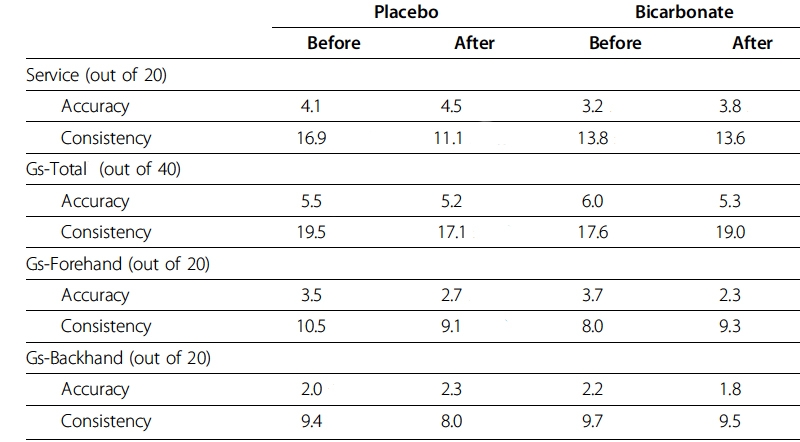
A study on cycling time trial performance compared a month’s supplementation of beta-alanine (65mgs per kilo of bodyweight) to a single, pre-exercise dose of 0.3g/kg of bicarbonate(10). Although beta alanine is often touted as an effective supplement for high-intensity performance, the researchers found that regardless of whether beta-alanine or placebo had been supplemented during the previous 28-day period, a single dose of bicarbonate ingestion before the 4-minute time trial produced a significant hike in average power output – a gain of 3.1%. Meanwhile, beta-alanine supplementation on its own produced only marginal gains – gains that were not considered statistically significant. And when the cyclists ingested sodium bicarbonate after beta-alanine, the gains were only very slightly greater than when sodium bicarbonate was taken without prior beta-alanine supplementation (3.3% vs. 3.1%). The clear implication is that (for these time trials at least) pre-exercise bicarbonate ingestion was far more effective than beta-alanine!
Fly in the ointment
Although there’s much recent positive research on bicarbonate supplementation, it’s worth adding that some studies continue to throw up inconsistent results. These have included:- A study on elite BMX cyclists who performed three consecutive Wingate tests to exhaustion separated by 15 min recovery and who took 0.3g/kg of bicarbonate 90 minutes prior to exercise(11) – the ingested bicarbonate did not improve the Wingate test performance or the rate of perceived exertion (RPE);
- A study on rugby players who consumed 0.3g/kg of bicarbonate 65 minutes before completing a 25-min warm-up followed by 9 minutes of high-intensity rugby-specific training then a rugby-specific repeated-sprint test(12) – there was no increase in performance with bicarbonate and the players also reported an increased incidence of belching, stomach ache, diarrhoea, stomach bloating, and nausea;
- A study on lightweight rowers who 0.3g/kg of bicarbonate 70-90 minutes before a 2000m race(13) – compared to a placebo, there was no increase in performance;
Perhaps we can take heart from an Australian meta-study (a study that pools data from a number of other studies), which looked at data from 38 previous studies on bicarbonate supplementation(14). It found that with an average pre-exercise dose of 0.3g/kg, an athlete subsequently performing a 1-minute sprint (regardless of sport) was likely to benefit from a performance enhancement of around 2% - very significant. Moreover, the more sprinting bouts performed following bicarbonate ingestion, the greater were the benefits. Conversely, the longer the sprinting bout, the less benefit afforded by bicarbonate and it was also clear that non-athletes (presumably working less intensely) gained less from bicarbonate use than competitive athletes.
Summary and practical advice
Hopefully, this article has shown that although bicarbonate is perhaps one of the oldest and least ‘trendy’ supplements out there, there’s still plenty of fairly recent interest in its performance-enhancing potential. And unlike many so-called ‘ergogenic aids’ out there, bicarbonate really can do what it says on the tin! Unfortunately, every silver lining has a cloud, and in the case of bicarbonate, that cloud can mean gastric distress and quite a large degree of inter-individual (genetic) variability in response. Although there’s not much you can do about the latter, recent research suggests you can minimise the former. Here then are some practical recommendations based on 'best practice' for those thinking of using bicarbonate:- *Consider the energy demands of your sport – unless it involves bursts of maximal exercise lasting between 30 seconds and 5 minutes, it’s unlikely you’ll reap significant benefits from bicarbonate;
- *Consider your performance level – because bicarbonate supplementation aids maximal sustained exercise, it’s unlikely that even moderately fit recreational sportsmen and women have much to gain from its use. Elite or highly competitive athletes on the other hand may well benefit;
- *Experiment with your dosing protocol – the latest research shows that for minimal gastric distress, a single 0.3g/kg dose taken 2.5-3.0 hours before exercise will produce excellent results while minimising gastric distress. Alternatively, a staged intake of 3 x doses of 0.1g/kg over 2-3 hours may be equally well tolerated and effective;
- *0.3g/kg of bicarbonate can be quite unpalatable even in a strongly flavoured drink – consider taking bicarbonate capsules instead, perhaps using a staged intake;
- *Don’t take bicarbonate on an empty stomach – you’re less likely to suffer gastric distress if you’ve eaten something in the 2-3 hours prior to bicarbonate ingestion.
- *Never experiment with bicarbonate in a race – always perfect your ingestion protocol during training;
- *Never exceed a total bicarbonate intake of 0.4g/kg before any exercise session.
References
- Curr Sports Med Rep. 2008; 7(4): 230-236
- J Strength Cond Res. 2010 Jul;24(7):1834-42
- J Appl Physiol. 2006; 101(3): 918-925
- Sports Performance Bulletin 2010; 293: 1-4
- J Strength Cond Res. 2011 Sep 29. [Epub ahead of print]
- Int J Sports Med. 2010 Nov;31(11):797-802
- J Sci Med Sport. 2011 Sep;14(5):435-40
- J Strength Cond Res. 2010 Nov;24(11):3105-11
- J Int Soc Sports Nutr. 2010 Oct 26;7:33
- Med Sci Sports Exerc. 2012 Feb 9. [Epub ahead of print]
- Eur J Appl Physiol. 2011 Dec;111(12):3127-34
- Int J Sport Nutr Exerc Metab. 2010 Aug;20(4):307-21
- Int J Sports Physiol Perform. 2011 Aug 30. [Epub ahead of print]
- Sports Med. 2011 Oct 1;41(10):801-14
Newsletter Sign Up
Testimonials
Dr. Alexandra Fandetti-Robin, Back & Body Chiropractic
Elspeth Cowell MSCh DpodM SRCh HCPC reg
William Hunter, Nuffield Health
Newsletter Sign Up
Coaches Testimonials
Dr. Alexandra Fandetti-Robin, Back & Body Chiropractic
Elspeth Cowell MSCh DpodM SRCh HCPC reg
William Hunter, Nuffield Health
Keep up with latest sports science research and apply it to maximize performance
Today you have the chance to join a group of athletes, and sports coaches/trainers who all have something special in common...
They use the latest research to improve performance for themselves and their clients - both athletes and sports teams - with help from global specialists in the fields of sports science, sports medicine and sports psychology.
They do this by reading Sports Performance Bulletin, an easy-to-digest but serious-minded journal dedicated to high performance sports. SPB offers a wealth of information and insight into the latest research, in an easily-accessible and understood format, along with a wealth of practical recommendations.
*includes 3 coaching manuals
Get Inspired
All the latest techniques and approaches
Sports Performance Bulletin helps dedicated endurance athletes improve their performance. Sense-checking the latest sports science research, and sourcing evidence and case studies to support findings, Sports Performance Bulletin turns proven insights into easily digestible practical advice. Supporting athletes, coaches and professionals who wish to ensure their guidance and programmes are kept right up to date and based on credible science.
